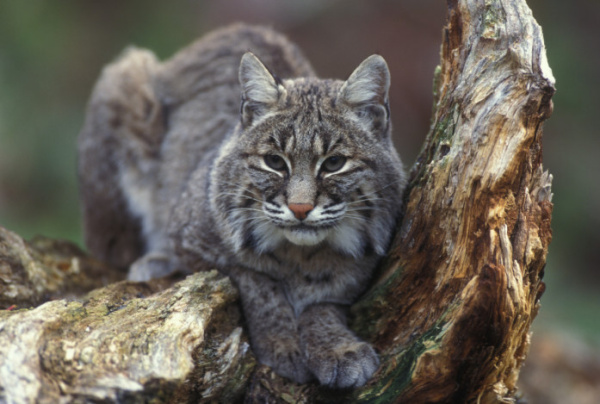Hunters and hunted. It’s the law of the natural world. Some critters are on the top, some were destined to be lunch. But even those on the high end of the food chain often become meals for others in that Great Circle of Life.
But we humans have altered the scene over the decades and today, the essence of Humans Who Hunt is not done for survival, but more for sport, camaraderie and a touchstone to the old ways. It’s also done for profit.
The California Fish and Game Commission is currently reviewing the Bobcat Protection Act which could ban bobcat trapping across the state.
The Act was signed into law in 2013 and was originally intended as a ban on commercial trapping of bobcats—but it was amended before Governor Jerry Brown signed it and the law only prevents traps around wildlife refuges, national and state parks and wildlife areas in California. Everywhere else is fair game.
The Commission is looking at two options for the law; one would permit commercial trapping in areas with only designated high-density bobcat populations along with a restructuring of fees for trappers, and the other option would be an all-out ban statewide. One could be potentially messy with enforcement, paperwork and personnel; the other is pretty cut and dry.
Wildlife advocates are pushing to end the trapping of one of California’s most elusive predators. These bigger-than-your-average-sized cats have a lot stacked against them, despite the fact they help the local ecosystem by keeping local rodent and rabbit population in check.
Many cats are getting second generation poisoned and/or suffering from mange because of ingesting rodenticides. Bobcats are constantly on the move, having been crowded out of their natural habitat by human development. Being killed on the highways by vehicles is a common occurrence. Oh, and the drought isn’t helping them either.
On top of all of this, bobcats must avoid hunters who “harvest” the cats for profit, mainly for their spotted pelt which are sold overseas to markets in Asia and Russia. Over the past years, the price for bobcat pelts has increased by 365 percent to about $400 per pelt. Recreational trappers are also in the mix.
All in all, the public is invited to share their concerns and send comments to the Fish and Game Commission before it makes its final vote on these two trapping outcomes on Wednesday, August 5.
We know the value of hunting, but hunting bobcats these days seems unnecessary. A statewide ban would be the simplest way to make sure that these predators have the best chance for survival overall. We are with the folks at Wildlife Emergency Services on this issue.
Want to add your voice for a statewide ban? Do so right here.

